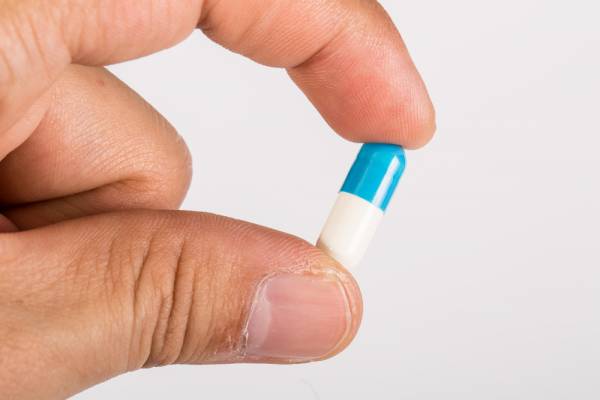Approximately 67% of Americans are classified as overweight and obese. We are all aware that obesity rates in the United States and around the world continue to climb at alarming rates. But what everyone may not know is that the rate of mood disorders are also increasing.
According to Healthline the number of patients diagnosed with depression increases by 20% every year. The CDC estimates that 11% of children – 6.4 million – were diagnosed with ADHD in 2011. Can obesity and mood disorders share common mechanisms?
The Role of Neurotransmitters
The answer lies in the brain chemicals known as neurotransmitters. Neurotransmitters communicate information throughout the brain and body. They are the targets of antidepressant medications, as well as hyperactivity disorder medications. They also help to regulate our appetite. The major one we will focus on today is serotonin. But others such as dopamine, GABA, and the endorphins also play critical roles in our mood and our appetites.
Neurotransmitters are made from specific amino acids. For example, serotonin is made from the amino acid tryptophan. Serotonin is responsible for our mood, and low levels of serotonin have been linked to depression, anxiety, and aggressive behavior.
Serotonin and Tryptophan Depletion
One mechanism in which serotonin may become low is through tryptophan depletion.1 Tryptophan is not found in high amounts in many foods. This can lead to it becoming depleted very quickly when we undertake a diet that cuts calories. This does not mean that everyone undertaking a low calorie diet will become depressed, but studies have shown that tryptophan depletion can negatively affect mood in a 24-hour period to those with greater genetic susceptibility to serotogenic pathway dysfunction.2 The rising depression rates suggests that there is an increased genetic predisposition to serotonin issues in the population. Something to think about before you start cutting calories.
Serotonin and Antidepressants
Serotonin can also become depleted from overproduction. Too much serotonin forces the cells to desensitize themselves from the neurotransmitter, much in the same manner that our cells develop insulin resistance from high sugar diets.
One way our synapses can become overwhelmed with serotonin is through antidepressant medications. The most popular form of antidepressant medications are selective serotonin reuptake inhibitors (SSRI). In a nutshell, these disallow the neurons to take back recyclable material in order to make more serotonin. This leaves more serotonin to be outside of the cell. The problem is the cell receptors desensitize and they also lose the ability to make more serotonin. This is a major reason why medications are constantly being altered in patients with diagnosed mood disorders.

Serotonin and Vitamin D
Vitamin D also plays a critical role in serotonin function. During the darker times of year depression rates rise. This is known as seasonal affective disorder (SAD). Vitamin D is converted in our bodies from sunlight and is used in treatment of SAD. Vitamin D helps our mood by turning on genes that actually release our neurotransmitters.3 One billion people worldwide are suspected to have vitamin D deficiency.4 Without vitamin D we may not be able to produce enough of these important neurotransmitters.
Serotonin and Dopamine
Serotonin and dopamine have a complex relationship in the brain. Dopamine is made from the amino acid tyrosine and is largely responsible for our memory, focus, and energy levels. It is our “hunt and reward” neurotransmitter that drives us to reproduce and eat, and drugs such as cocaine and Ritalin engage this pathway. SSRI medications increase serotonin, but they also inhibit dopamine.5 Daily binging on sugar actually releases dopamine.6 This can lead to sugar addiction.
Dr. Kenneth Blum coined this scenario the reward deficiency syndrome. This syndrome involves becoming addicted to any substance or action that will help balance out our neurotransmitters. For example, if we have low dopamine and take cocaine, which raises dopamine, we will become addicted to it. The same can be said for foods that raise dopamine levels. This could help explain why weight gain is a common side effect of many antidepressants. You may be thinking that this only effects those taking medications. This is not true.
Food Addiction, Stress, and Your Mood
In my nutrition practice, dopamine and serotonin deficiencies are very common. You can even check for yourself by taking an online mood questionnaire. Serotonin helps us deal with stress and being under chronic stress can lead to the desensitization of serotonin and an inability to produce enough.
Dopamine is also negatively affected during stress. How are your memory, focus, and energy levels under chronic stress? This deficiency can lead to us binge-eating on foods that create the largest dopamine and serotonin responses such as sugar. The poor food choices balance out our neurotransmitters and we become addicted to that food. We all have that food that we just love.

Dopamine also has a direct relationship with leptin. Leptin is the hormone responsible for telling us how much body fat to store and when to stop eating. As leptin levels rise, so do dopamine levels. When we consume a high sugar meal, we get a high insulin response. High insulin equals high leptin. And like other substances, we can develop insulin and leptin resistance. If leptin levels continue to rise, so do dopamine levels, and our cells can desensitize to dopamine. This drives us to eat more sugar and gain more weight. In fact, some studies have linked excessive fat to dopamine deficiency.7
The human body is an extremely complex machine. The solution to the problems we are facing with increasing weight and decreasing mood is not going to be a simple one. There will never be a one-size-fits-all approach to fixing these issues because there are so many mechanisms involved that all communicate and interact with each other.
In upcoming articles we will explore other neurotransmitters and how food choices interact with all of these pathways. Until then, focus on eating nutrient-dense food that comes from the earth.
References:
1. Cowen, PJ. “Serotonin and depression: pathophysiological mechanism or marketing myth?” Trends in Pharmacological Sciences (2008). Retrieved on April 27, 2014.
2. Klaassen, T., et.al., “Mood effects of 24-hour tryptophan depletion in healthy first-degree relatives of patients with affective disorders“. Biological Psychiatry (1999). Retrieved on April 27, 2014.
3. Greenblatt, J. “Psychological Consequences of Vitamin D Deficiency.” Psychology Today (2011). Retrieved on April 27, 2014.
4. Holick, M. “Vitamin D Deficiency.” New England Journal of Medicine (2007). Retrieved on April 27, 2014.
5. Damsa, C, et.al., “‘Dopamine-dependent’ side effects of selective serotonin reuptake inhibitors: a clinical review.” Journal of Clinical Psychiatry (2004). Retrieved on April 27, 2014.
6. Rada, P, et.al., “Daily bingeing on sugar repeatedly releases dopamine in the accumbens shell.” Neuroscience (2005). Retrieved on April 27, 2014.
7. Tellez, L. et.al., “A Gut Lipid Messenger Links Excess Dietary Fat to Dopamine Deficiency.” Science (2013). Retrieved on April 27, 2014.
Photos courtesy of Shutterstock.






